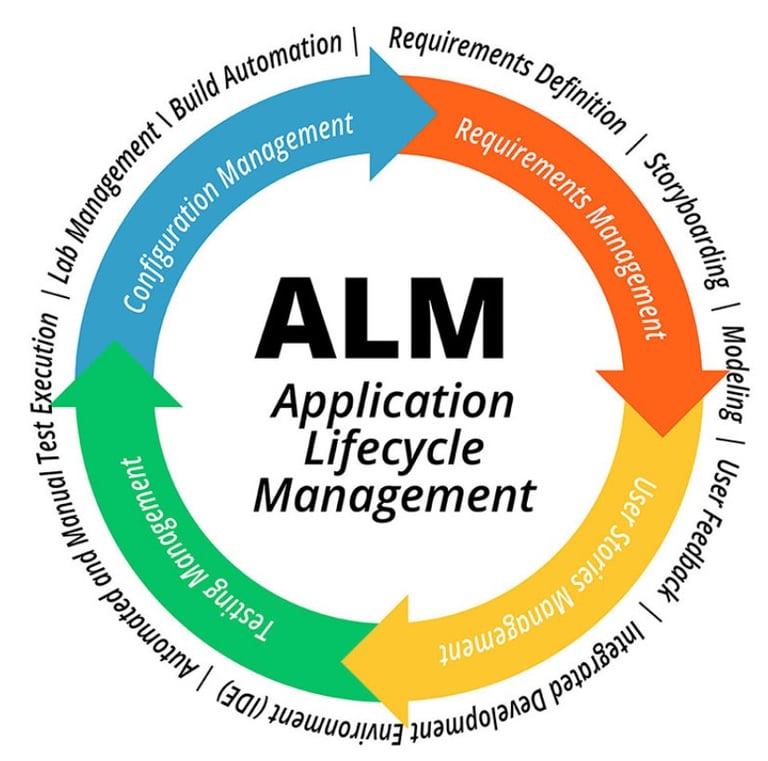Presentations
What is ALM ?
An Application Lifecycle Management (ALM) tool is a software platform that manages the entire lifecycle of an application, from initial planning and requirements gathering to development, testing, deployment, maintenance, and eventual retirement. These tools help organizations streamline their software development process, improve collaboration, and ensure that applications meet business needs and quality standards throughout their lifecycle.
How ALM tools work:
ALM tools provide a central repository for all aspects of the application lifecycle, including:
Requirements Management: Storing, tracking, and linking user requirements, technical specifications, and user stories.
Project Management: Managing project timelines, tasks, resources, and progress.
Software Development: Managing code changes, tracking issues, and facilitating collaboration among developers.
Testing and Quality Assurance: Creating, managing, and executing test cases, and tracking defects.
Deployment and Release Management: Managing deployments, tracking releases, and ensuring compliance with standards.
Maintenance and Support: Managing ongoing maintenance tasks, bug fixes, and updates.
Key benefits of using ALM tools:
Improved Collaboration:
ALM tools facilitate communication and collaboration among different teams and stakeholders, such as developers, testers, project managers, and business analysts.
Enhanced Traceability:
ALM tools enable teams to trace the origin of requirements, bugs, and code changes, which helps in identifying the root cause of issues and improving the quality of the application.
Increased Efficiency:
By automating tasks, standardizing processes, and providing a centralized repository for all information, ALM tools can significantly improve the efficiency of the software development process.
Better Visibility:
ALM tools provide a comprehensive view of the application lifecycle, enabling teams to track progress, identify potential bottlenecks, and make informed decisions.
Reduced Costs and Risks:
By improving collaboration, traceability, and efficiency, ALM tools can help organizations reduce costs associated with rework, delays, and defects.
What is ALM (Application Lifecycle Management)? - AWS
What are ALM tools? ALM (Application Lifecycle Management) tools are software that developers, analysts, and other stakeholders us...
AWS
What Is Application Lifecycle Management (ALM)? - TechTarget
ALM tools enable users to define project requirements and develop user stories, which can then be prioritized, scheduled and broke...
TechTarget
Application lifecycle management (ALM) with Microsoft Power Platform
29 de jan. de 2025 — What is ALM? ALM is the lifecycle management of applications, which includes governance development and maintenance
Learn Microsoft






B.I and Agile Solutions
Fortifying core business pillars, developing firms, integrating agile
Contact ( Provisory- Brazil)
Services
Tel: 55(41) 99134-1863
© 2024. All rights reserved.
